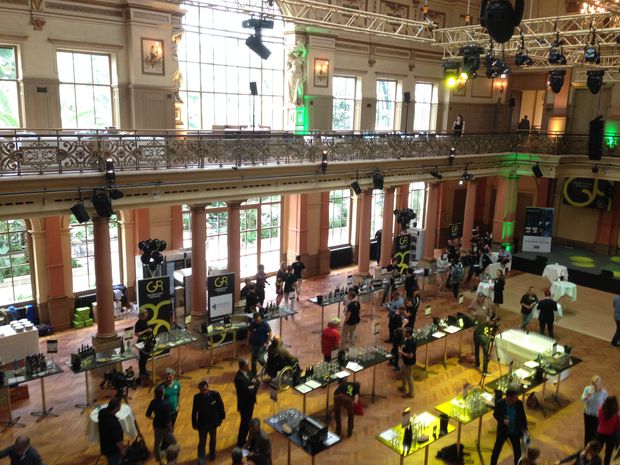
Rallying call for German wines as Generation Riesling celebrates 10th anniversary
Generation Riesling's 10-year anniversary event highlighted changing perception and remaining challenges with the image and sales of German wines
With Riesling as its rallying call, Germany's Generation Riesling producers gathered in Frankfurt on 13 June to mark a decade of collective emphasis on a new dynamism and cooperation in the industry, addressing the movement's achievements and ongoing ambitions for the global markets.
The group, which formally launched in London in 2006, with 25 young producers all meeting the criteria of being 35 or under, quality focused and keen on active collaboration, has swelled to include some 530 winemakers, claiming to be the largest such winemaker community in the world.
"Generation Riesling has become a successful brand, focused on producers creating the new generation of wines rather than the very well established producers, younger people in the trade that are generating the interest in what is next, what is new, what is evolving," said Monika Reule, managing director, German Wine Institute.
"This is an internationally oriented generation of young producers who understand the styles of wines that people want, but don't copy what the rest of the world does, instead focussing on working with what they have here in Germany," said Reule.
Generation Riesling veteran Jan Eymael, winemaker at Weingut Pfeffingen, added: "It has been vey important as an industry to have this collaboration, bringing together the whole wine community, across all wine regions, to share information and techniques and ideas and this has made a big difference as it never really happened before in Germany."
The Generation Riesling banner has increasingly seen collaboration between producers at tastings and events across Germany and in countries such as the UK and Japan.
The audience of international journalists learned that Germany's production has remained stable relative to many rival producing countries, with uptake in exports strongest to territories including Scandinavia, the Benelux countries and with Asia Pacific markets remaining a strong focus.
Changing perceptions
Many of the Generation Riesling producers present as the tasting, however, including guest founder members that had now exceeded the age limit, reported that in contrast the US and UK remain the most difficult markets in terms of changing perception and gaining distribution.
Leading German wine expert and sometimes controversial communicator Stuart Pigott told Harpers: "The difficulty is that some of the importers in the most important markets belong to an older generation, and do well with the well established estates, so they tend to be very cautious and have missed out on [the new generation of wines]."
"This is not a little change that has been going on in Germany, it has been a massive sea change and is often going on in the places where you least expect it," added Pigott.
Riesling was originally chosen as the obvious hook for promoting across all German wine styles. But at the event in Frankfurt many producers spoke of a mix of climate change, coupled with a will to broaden out of the perception of quality German wines, conspiring to bring other varieties increasing to the fore.
The word "cool" cropped up a lot, with crisp, modern presentation and labels much in evidence and an emphasis on making German wine "accessible and fun", as one producer put it.
Most notable are the 'Burgundy' varieties Spatburgunder (Pinot Noir), Weissburgunder (Pinot Blanc) and Grauburgunder (Pinot Gris) to the fore, along with other native frontrunners including Scheurebe, Silvaner and Dornfelder.
Asked what the focus for the next ten years would be for Generation Riesling, Reule was upbeat about Germany's prospects to gain ground in major markets such as the UK and USA.
"Generation Riesling now doesn't need any driving force as it has gained such momentum and such popularity, beyond anything we thought would happen when we started, so perhaps now we need to think about 'Generation Spatlese' for those that are now over 35."




